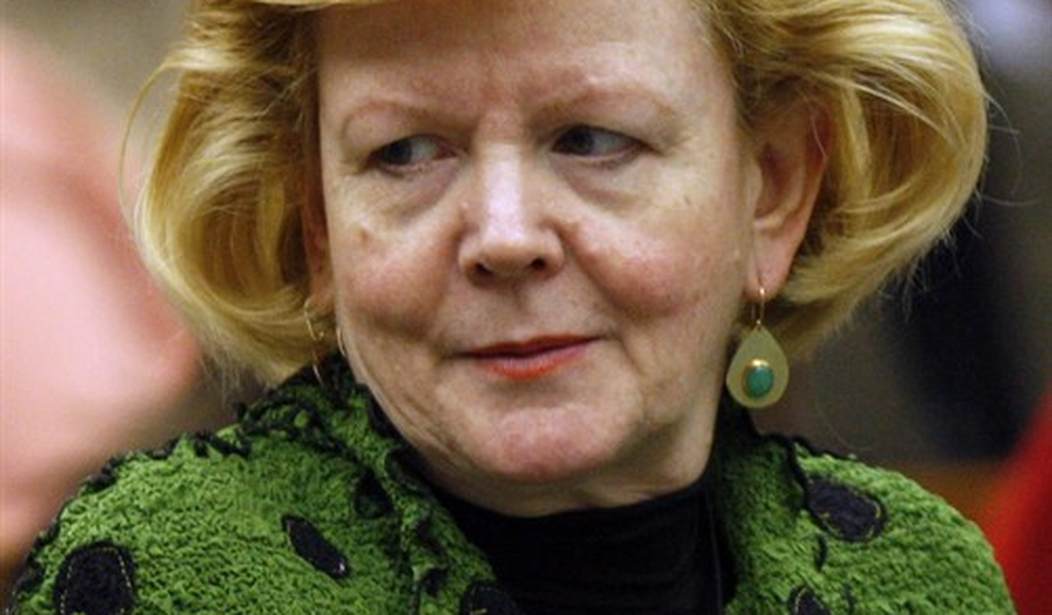Thursday must be Preliminary Injunction Day for the federal judiciary because they've issued a slew of them as to numerous Trump administration executive actions today. Several of them have to do with the Department of Education and the "Dear Colleague" letter issued in February regarding DEI-related programming. And there's one involving the withholding of federal funding from sanctuary cities and states.
READ MORE: Here We Go Again: Federal Judge Blocks Yet Another Key Trump Illegal Immigration Policy
Not to be left out, Judge Colleen Kollar-Kotelly (D.C. District Court) entered a preliminary injunction in a trio of consolidated cases involving President Trump's executive order regarding election integrity (EO 14248).
⚖️NEW: Apparently, today is Preliminary Injunction Day: Judge Colleen Kollar-Kotelly (D.C.) grants PI in LULAC/DNC v. Trump cases re: EO on "Preserving and Protecting the Integrity of American Elections" - https://t.co/UFsYm45QKz
— Susie Moore ⚾️🌻🐶 (@SmoosieQ) April 24, 2025
Trump issued the order on March 25, 2025, and Ward Clark gave us an overview of what's in it:
The EO discusses the integrity of voter registration:
Within 30 days of the date of this order, the Election Assistance Commission shall take appropriate action to require, in its national mail voter registration form issued under 52 U.S.C. 20508:
(A) documentary proof of United States citizenship, consistent with 52 U.S.C. 20508(b)(3); and
(B) a State or local official to record on the form the type of document that the applicant presented as documentary proof of United States citizenship, including the date of the document’s issuance, the date of the document’s expiration (if any), the office that issued the document, and any unique identification number associated with the document as required by the criteria in 52 U.S.C. 21083(a)(5)(A), while taking appropriate measures to ensure information security.
And, there is a section strong-arming the states into strictly abiding by federal election laws:
The Election Assistance Commission shall, pursuant to 52 U.S.C. 21003(b)(3)and 21142(c) and consistent with applicable law, take all appropriate action to cease providing Federal funds to States that do not comply with the Federal laws set forth in 52 U.S.C. 21145, including the requirement in 52 U.S.C. 20505(a)(1) that States accept and use the national mail voter registration form issued pursuant to 52 U.S.C. 20508(a)(1), including any requirement for documentary proof of United States citizenship adopted pursuant to section 2(a)(ii) of this order.
READ MORE: President Trump Issues Executive Order on Election Integrity: What's in It?
Almost immediately, several organizations sued the Trump administration seeking to enjoin its implementation of the EO. The Democratic National Committee (DNC) sued first, followed closely by the League of United Latin American Citizens (LULAC), and then the League of Women Voters Education Fund. Given the similarity of the issues, the cases were consolidated, and Kollar-Kotelly is overseeing all three.
On Thursday, Kollar-Kotelly issued a 120-page memorandum opinion in support of her order granting the plaintiffs in the LULAC and League cases a preliminary injunction, prohibiting the administration from giving effect to section 2(a) of the order (requiring proof of citizenship in the national mail voter registration form).
Kollar-Kotelly explains her ruling, in part, thusly:
Three groups of plaintiffs filed motions for preliminary injunctions arguing that the President lacks the power to issue those orders. They contend that under our Constitution and the relevant law, the President has no role in regulating federal elections. Their motions do not call upon the Court to decide whether the President’s executive order reflects good policy choices or even whether the policies it describes would be legal if implemented. Rather, this Court’s task is to decide whether the President can dictate those policies unilaterally, or whether that power is reserved to Congress and the States alone.
...
Our Constitution entrusts Congress and the States—not the President—with the authority to regulate federal elections. Consistent with that allocation of power, Congress is currently debating legislation that would effect many of the changes the President purports to order. See Safeguard American Voter Eligibility Act, H.R. 22, 119th Cong. (2025). And no statutory delegation of authority to the Executive Branch permits the President to short-circuit Congress’s deliberative process by executive order.
As to the DNC case, Kollar-Kotelly's order prohibits the administration from giving effect to section 2(d) of the order (requiring the heads of agencies to "assess citizenship prior to providing a Federal voter registration form to enrollees of public assistance programs") but denies its request as to sections 2(b) (identifying unqualified voters), 7(a) (Attorney General to enforce provisions against states that include absentee or mail-in ballots received after Election Day in vote tabulation), and 7(b) (conditioning federal funding on states' adoption of uniform, non-discriminatory standards as to voting deadlines and methods of voting) of the EO.
Here's a bit more on the judge's rationale for declining to enjoin those portions of the EO:
Kollar-Kotelly declined to block another part of Trump’s order that is meant to prevent states from counting mail ballots that officials receive after Election Day. Seventeen states and Washington, D.C., allow such ballots to be counted if they are mailed by Election Day. (One of those states, out of Mississippi, was recently blocked by an appeals court.)
...Kollar-Kotelly said she wasn’t blocking those parts of the order because the lawsuit is in its early stages and it may be better for challenges to be brought by affected states instead of the Democratic Party and voting rights groups. States have separately sued over the order before a different judge.
Given the pattern that has emerged in all of this litigation, we can expect the administration to appeal Kollar-Kotelly's order to the D.C. Circuit. This one is far from over. We'll continue to follow it, of course, and report on any further developments.
Editor's Note: Radical leftist judges are doing everything they can to hamstring President Trump's agenda to make America great again.
Help us hold these corrupt judges accountable for their unconstitutional rulings. Join RedState VIP and use promo code FIGHT to get 60% off your membership.















Join the conversation as a VIP Member